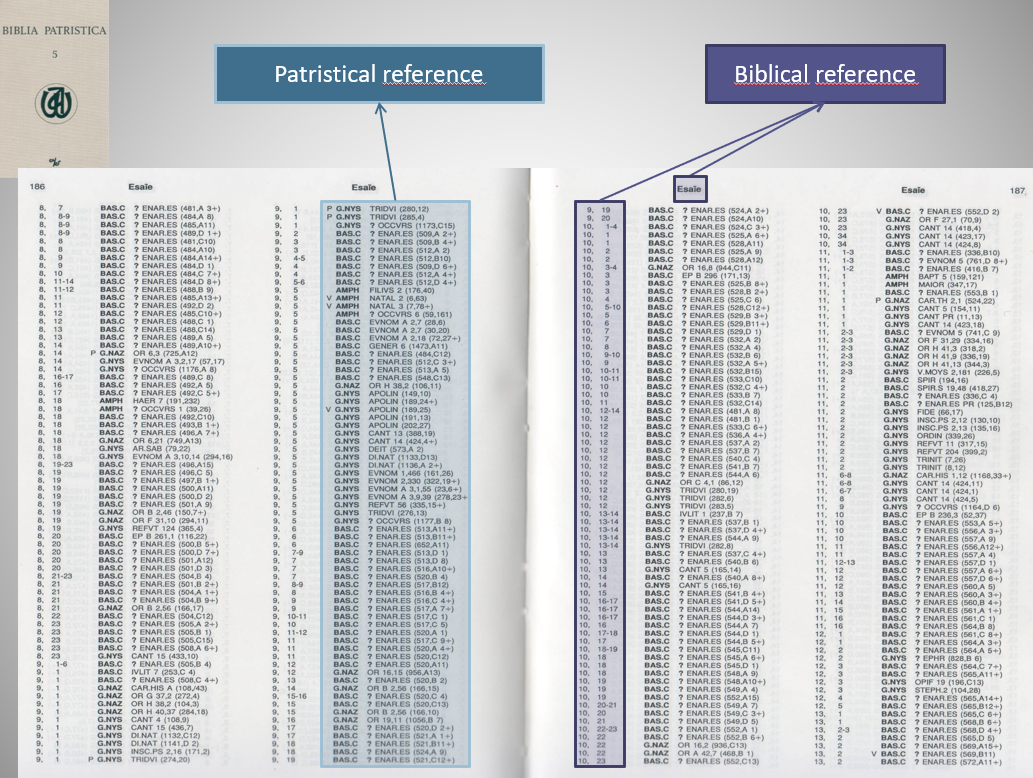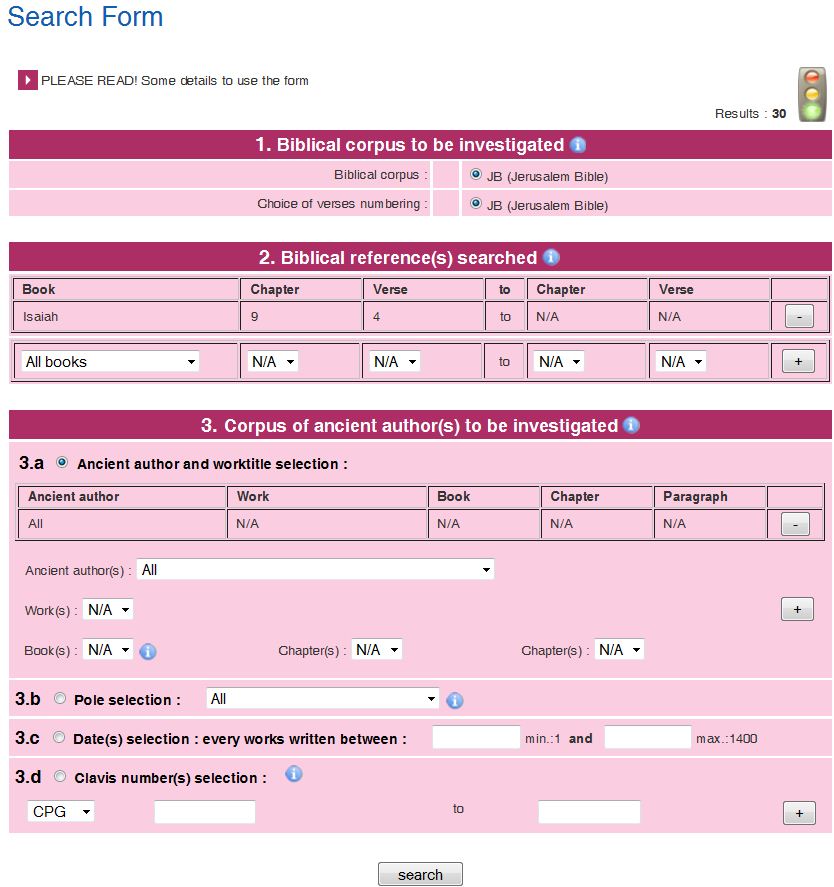Before the opening of the BiblIndex website in December 2008, only one comprehensive tool was available for systematic research on biblical interpretation in Christian antiquity: the eight published volumes of Biblia Patristica, the index listing biblical quotations from Greek and Latin patristic authors, prepared by the Strasbourg team of the CADP (Center for Analysis and Patristic Documentation) from 1965 to 2000. Unfortunately, the remarkable work of the CADP had to stop, for lack of means, even though the richest period of patristic literature, the 4th century, was being approached. Some of the best-known authors from the Latin world (Augustine, Jerome, Gregory the Great) or from the Greek world (Athanasius, John Chrysostom) were still absent, not to mention the literature in oriental languages which remained untreated. Moreover, these volumes, for the most part out of print, have proven difficult to handle for research on several authors; their system of abbreviations and acronyms is complex. In addition, they obviously do not give access to the texts themselves, but only to numerical references in published editions.
-

Story of the project: from Biblia Patristica to BiblIndex

